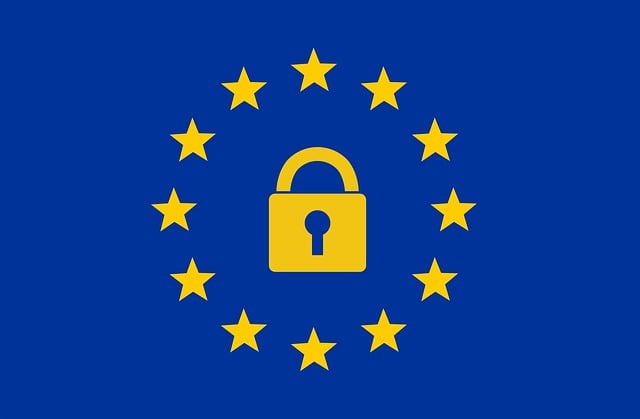Contempt of court orders carry significant consequences, necessitating strategic navigation. Key steps include seeking clarification, negotiating alternatives, and employing valid legal defenses through proactive communication with representatives. Effective compliance monitoring, understanding court mandates, and maintaining open communication prevent unintentional violations. Facing contempt charges requires understanding rights and available legal strategies, such as challenging order validity or demonstrating reasonable efforts. Consequences range from fines to imprisonment, with asset seizure and community service also possible. Case studies provide valuable insights into practical application of contempt legal strategies.
In the intricate dance of legal proceedings, ensuring compliance with court orders is paramount. Contempt of court, a serious matter, arises when individuals fail to adhere to mandated actions, carrying significant implications. This article navigates the complex landscape of contempt legal strategies, exploring common causes, proactive measures, and rights in defense. Through real-world case studies, we illuminate crucial lessons, emphasizing the importance of understanding and adhering to court orders to avoid dire consequences.
- Understanding Contempt of Court Orders: Definitions and Implications
- Common Causes of Contempt: Recognizing Violations
- Legal Strategies for Avoiding Contempt: Proactive Measures
- Responding to Contempt Charges: Rights and Defenses
- Enforcement Mechanisms: Consequences and Remedy
- Case Studies: Lessons from Real-World Contempt Scenarios
Understanding Contempt of Court Orders: Definitions and Implications

Contempt of court orders are legally binding decisions issued by a judge, holding individuals or entities accountable for actions that hinder or defy the authority of the court. These orders can range from simple financial penalties to more severe sanctions, including imprisonment, depending on the nature and severity of the contemptuous behavior. Understanding the implications of these orders is crucial for anyone involved in legal proceedings. Ignoring or failing to comply with a court order can have significant consequences, damaging one’s reputation, incurring additional legal fees, and potentially leading to further legal repercussions.
Legal strategies to navigate and ensure compliance with contempt court orders are diverse. They may include seeking clarification from the court, negotiating alternative arrangements, or employing legal defenses that challenge the validity of the order. Proactive communication with legal representatives is essential to explore these options and develop a plan tailored to each unique case. By staying informed, respecting judicial authority, and utilizing available resources, individuals and organizations can effectively manage their obligations, avoid escalating legal issues, and maintain integrity within the legal system.
Common Causes of Contempt: Recognizing Violations

Contempt court orders are designed to enforce legal decisions and maintain judicial authority, but non-compliance is a common issue. Recognizing violations is crucial for both individuals and organizations to understand their obligations and potential consequences. Common causes of contempt include willful disregard for court orders, failure to turn over documents or assets as mandated, and intentional obstruction of justice. These actions can range from not paying fines or restitution as directed to deliberately ignoring injunctions or restraining orders.
Effective contempt legal strategies involve proactive compliance monitoring, regular communication with legal representatives, and a commitment to understanding and adhering to court-mandated requirements. Staying informed about the specifics of an order and seeking clarification when needed are essential components of avoiding contempt. Proactive measures can include setting up automated payment plans, maintaining detailed records, and ensuring all relevant parties are aware of their responsibilities to prevent any unintentional violations that could lead to legal repercussions.
Legal Strategies for Avoiding Contempt: Proactive Measures

To avoid finding oneself in contempt of court, individuals and organizations must adopt proactive legal strategies. This involves a multifaceted approach that begins with thorough understanding and comprehension of the court order. Legal counsel should ensure that every clause is clearly interpreted and that all parties involved are educated on their obligations. Proactive measures include setting up robust internal systems to monitor compliance, establishing regular reporting mechanisms, and conducting training sessions for employees or stakeholders who might be directly engaged with the court’s directives.
Additionally, maintaining open lines of communication with the court is vital. Regular updates on progress towards fulfillment of the order can prevent misunderstandings or misinterpretations that could lead to contempt charges. Proactive strategies also encompass seeking clarifications from the court whenever uncertainties arise and demonstrating a commitment to adhering to the letter and spirit of the order.
Responding to Contempt Charges: Rights and Defenses

Facing contempt charges can be a daunting experience, but understanding your rights and available defenses is crucial in navigating this legal process. If accused of violating a court order, whether intentionally or not, it’s essential to know that you have options. Legal strategies such as challenging the validity of the order, asserting lack of knowledge about its specifics, or demonstrating reasonable efforts to comply can all be employed to defend against contempt charges.
Your right to due process is paramount, ensuring a fair hearing where evidence is presented and arguments are made. An experienced attorney can help construct a robust defense, considering factors like the clarity of the court order, your intent, and any extenuating circumstances. By understanding these rights and defenses, individuals facing contempt charges can confidently navigate their legal options, ultimately seeking the best possible outcome.
Enforcement Mechanisms: Consequences and Remedy

In the event of contempt, various legal strategies and enforcement mechanisms come into play to ensure compliance with court orders. One primary consequence is the potential for financial penalties, including fines or the imposition of costs incurred by the aggrieved party. This serves as a direct economic disincentive for non-compliance. Furthermore, courts can issue commitments or bailiff warrants, mandating individuals or entities to specific actions and empowering authorities to enforce these orders through legal means.
Remedies extend beyond penalties. They may include community service, imprisonment for civil contempt (though this is less common), or the seizure of assets. The choice of remedy depends on the nature of the contempt and the order’s urgency. Strategic use of these consequences not only incentivizes compliance but also reinforces the authority and integrity of legal processes, ensuring that court orders are respected and followed.
Case Studies: Lessons from Real-World Contempt Scenarios

In the intricate landscape of legal disputes, case studies offer invaluable insights into the practical application of contempt legal strategies. Real-world scenarios paint a vivid picture of how courts address non-compliance with their orders, providing crucial lessons for legal professionals. For instance, a study of a high-profile commercial dispute revealed that aggressive yet strategic enforcement actions, such as asset freezes and targeted sanctions, effectively secured compliance without escalating into full-blown contempt proceedings. This demonstrates the power of tailored legal strategies in resolving contempt issues efficiently.
Another compelling case involves a family law matter where communication breakdowns led to repeated instances of non-compliance. Here, the court emphasized proactive measures like regular status updates and third-party monitoring to foster accountability. This approach highlights the importance of addressing systemic causes of contempt, rather than solely relying on punitive measures, for long-lasting compliance. Such case studies serve as a guiding tapestry for legal practitioners, enabling them to navigate complex contempt scenarios with enhanced expertise.






